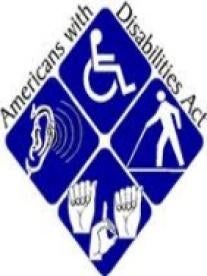It is not uncommon for employees who are on leave and receiving workers’ compensation benefits to be released to return to work with light duty restrictions. To account for these situations, some employers have designated light duty positions reserved for employees who are released to return to work on light duty after an occupational injury.
I was recently asked whether an employer is required to extend this policy to an employee who does not suffer an occupational injury, but requests light duty as a result of an ADA disability. The answer is yes.
Even if a workplace policy limits light duty positons to employees with occupational injuries, under the Americans with Disabilities Act an employer may be required to accommodate an employee seeking a light duty position if they don’t have an occupational injury and don’t otherwise qualify for a light duty position under company policy.
An ADA reasonable accommodation may include modifying an employer policy, absent an undue hardship. Therefore, an employer may be required to reassign an employee to a vacant light duty position otherwise reserved for occupational injuries if a disabled employee, regardless of the cause of the disability, is unable to perform the essential functions of his or her job, and there is no other effective accommodation available. It is worth noting that an undue hardship is generally not satisfied by a claim that reassignment under the ADA to a vacant otherwise reserved light duty position will result in no available positions for an employee who requests light duty after an occupational injury.
Prior to reassigning an employee to a light duty position, an employer should engage in an interactive process and ensure that the employee can perform the essential functions of the light duty job, with or without a reasonable accommodation.
Because the ADA does not require that an employer create a position as a reasonable accommodation, if an employer has only temporary light duty positions, it is not required to provide a permanent light duty position for a disabled employee.
The EEOC’s Enforcement Guidance illustrates the interplay between the ADA, occupational injuries and light duty using the following example:
R has light duty positions, which it reserves for employees in its manufacturing department when they are unable to perform their regular job duties because of on-the-job injuries. CP, an assembly line worker, has multiple sclerosis (MS) which substantially limits a number of major life activities. Eventually CP is unable to perform the essential functions of her position, with or without a reasonable accommodation, because of the MS. As a reasonable accommodation, CP requests that she be reassigned to a vacant light duty position for which she is qualified. R says that the vacant light duty position is reserved for employees who are injured on the job and refuses to reassign CP, although it would not impose an undue hardship to do so. R has violated the ADA by refusing to reassign her to the vacant light duty position.




 i
i


